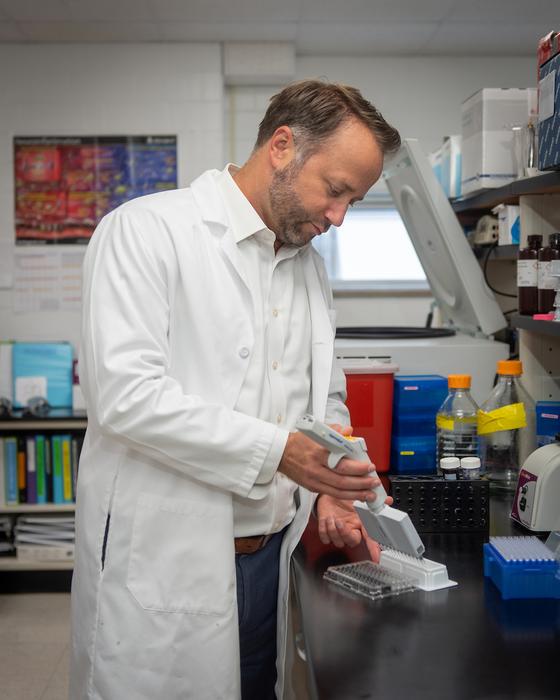Changes in Gut Microbiome Alters Rewarding Effects of Cocaine and Cravings

Credit: Wake Forest University School of Medicine
Changes in Gut Microbiome Alters Rewarding Effects of Cocaine and Cravings
WINSTON-SALEM, N.C. – Aug. 3, 2023 – According to the 2021 National Survey on Drug Use and Health, 4.8 million people (ages 12 and up) reported using cocaine within the previous 12 months, and 24,486 people died from an overdose involving cocaine. Because there are no FDA-approved medications for cocaine use disorder, there is an urgent need to develop therapeutic interventions.
In a new preclinical study from Wake Forest University School of Medicine, scientists provide the first evidence that changes in the gut microbiome have significant effects on cocaine use and cravings after withdrawal.
The study appears online in the journal Neuropsychopharmacology.
“In patients with a history of cocaine use disorder, there is a significant risk of relapse, and there are no effective medication treatments to reduce this risk. So, our study examines how the gut microbiome can impact drug seeking over time,” said Drew Kiraly, M.D., Ph.D., associate professor of physiology, pharmacology and psychiatry at Wake Forest University School of Medicine and Atrium Health Wake Forest Baptist.
The gut microbiome refers to the population of trillions of bacteria that live in the gastrointestinal tract of humans and animals. The connection between the microbiome and good health is well established, but more research is needed on how changes in the microbiome impact cravings for cocaine.
For the study, the research team administered antibiotics in a rodent model to measure the behavioral effects of a reduced microbiome. They found that animals with a depleted microbiome took more cocaine and worked harder to seek drugs after abstinence. This suggests that the rewarding effects of cocaine were affected by the gut microbiome. In addition to the behavioral changes, the research team also found that microbiome depletion significantly changed important neurobiological markers in reward-related brain structures.
The scientists also discovered that the effects of microbiome depletion could be reversed with the addition of molecules produced by beneficial bacteria in the gut microbiome that are important for brain health known as the short-chain fatty acids.
Kiraly said these findings provide an important foundation for future studies on specific microbial composition and how metabolite levels work on drug-seeking and other motivated behaviors.
“We might one day be able to target specific parts of the microbiome to help reduce drug relapse,” Kiraly said.
This research was supported by National Institutes of Health grants DA051551, DA044308, DA050906, DA053105 and NS124187.
Journal
Neuropsychopharmacology
DOI
10.1038/s41386-023-01661-w
Subject of Research
Animals
Article Title
Microbial short-chain fatty acids regulate drug seeking and transcriptional control in a model of cocaine seeking
Article Publication Date
2-Aug-2023




